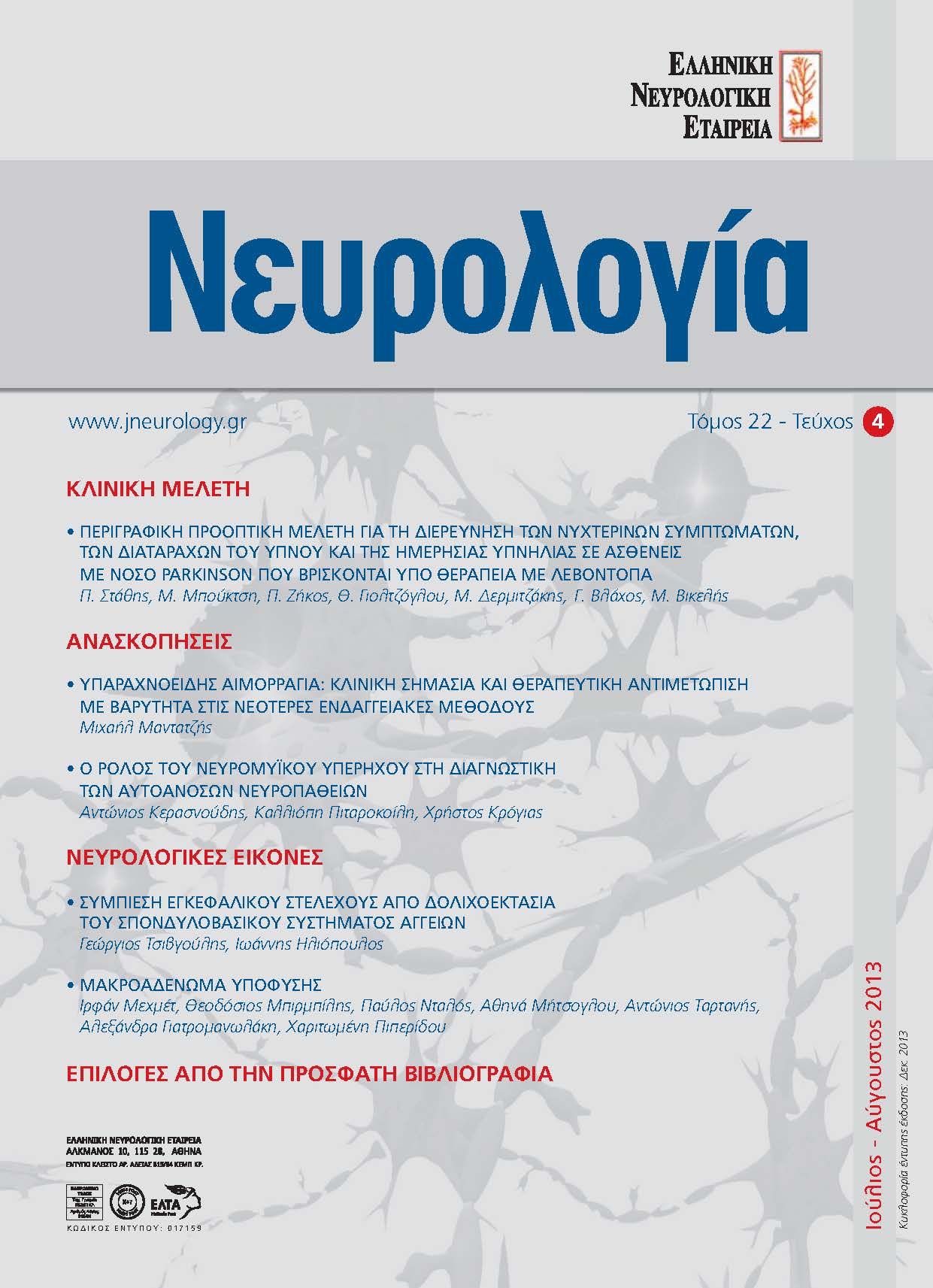An observational prospective study investigating the characteristics of nocturnal symptoms, sleep disorders and daytime sleepiness in patients with Parkinson’s disease under treatment with levodopa preparations.
Keywords:
Parkinson’s disease, levodopa, nocturnal symptoms, sleep disturbances, daytime sleepinessAbstract
Introduction and Purpose. Aim of present study is to investigate the characteristics of nocturnal symptoms,
sleep disorders and daytime sleepiness in patients with Parkinson’s disease under treatment with levodopa
preparations.
Materials and Methods. This is a multi-center, non-interventional, observational study involving 277 outpatients with Idiopathic Parkinson’s disease, according to the UK Parkinson’s Disease Society Brain Bank, who
were treated with any levodopa preparation at a daily dose of at least 500mg levodopa,Results. Mean age of participants was 70 years (SD=6.9, range 34 to 80) and the 57.6% were males. In
44.4% of subjects Parkinson’s disease diagnosis dated for more than 5 years. Only 31.5% of participants
stated that they were satisfied with the quality of their sleep, while one out of four (25.4%) considered
their sleep quality as poor; 12.3% reported dyskinesias or hyperkinesias during the night time occasionaly,
while 5.1% on a daily basis. Symptoms of daytime sleepiness, as sleeping in public, sleeping during a conversation or sleeping while watching television at least once per month were reported by 38.6%, 46.6 and 81.6%, respectively. Duration of disease of more than two years and partial compliance to medication
scheme were correlated with nocturnal symptoms. (p<0.001).
Conclusions: Sleep disturbances, nocturnal symptoms and symptoms of daytime sleepiness were frequent
in the population studied and correlated with longer disease duration and noncompliance to medication
scheme


